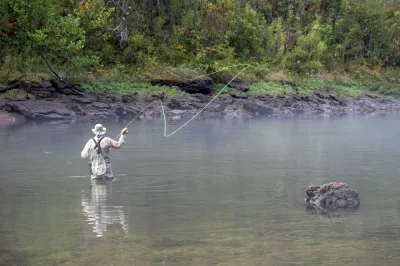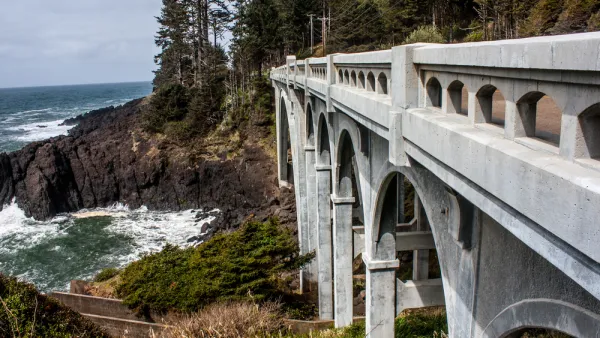Colorado is one of few U.S. states that has decided that private property owners supersede the public when it comes to access to rivers and streams.

“Who owns the beds of Colorado’s rivers?”
Ben Goldfarb reports for High Country News about a lawsuit that could change Colorado’s unique law that declares most of the state’s rivers to be non-navigable, and thus owned by adjacent property owners.
“From a river-access standpoint, Colorado is among the West’s oddest states,” explains Goldfarb. “Federal law dictates that the beds of ‘navigable’ rivers — waterways once used as highways for commerce — belong to the states, which, in turn, generally allow boaters and anglers to use them.”
“Colorado has historically denied that it even has navigable rivers,” adds Goldfarb. “In 1912, the state’s Supreme Court opined that the state’s waterways — steep, rushing, canyon-bound — were ‘nonnavigable within its territorial limits.’ By that logic, the beds of even major rivers belonged not to the state, but to the owners of adjacent private properties.”
Enter Roger Hill, who was repeatedly attacked by a property owner while fishing on the Arkansas River and decided to sue the property owners and the state, claiming that the river is, in fact, navigable.
More details on the case Hill has built to prove the river is navigable, with commercial traffic using the river back to the 1870s, is included in the article. Goldfarb also notes that Colorado is not the only state to litigate the issues of public access to rivers in recent years.
“In 2010, the Utah Legislature barred the public from wading non-navigable waters through private property, effectively closing more than 40% of the state’s miles of fishable streams; although anglers and boaters sued, a judge upheld the law last year,” for example. Advocates in New Mexico succeeded in fighting back a law that restricted access to the state’s rivers in 2015.
FULL STORY: The Colorado stream case that could revolutionize river access

Analysis: Cybertruck Fatality Rate Far Exceeds That of Ford Pinto
The Tesla Cybertruck was recalled seven times last year.

National Parks Layoffs Will Cause Communities to Lose Billions
Thousands of essential park workers were laid off this week, just before the busy spring break season.

Retro-silient?: America’s First “Eco-burb,” The Woodlands Turns 50
A master-planned community north of Houston offers lessons on green infrastructure and resilient design, but falls short of its founder’s lofty affordability and walkability goals.

Test News Post 1
This is a summary

Analysis: Cybertruck Fatality Rate Far Exceeds That of Ford Pinto
The Tesla Cybertruck was recalled seven times last year.

Test News Headline 46
Test for the image on the front page.
Urban Design for Planners 1: Software Tools
This six-course series explores essential urban design concepts using open source software and equips planners with the tools they need to participate fully in the urban design process.
Planning for Universal Design
Learn the tools for implementing Universal Design in planning regulations.
EMC Planning Group, Inc.
Planetizen
Planetizen
Mpact (formerly Rail~Volution)
Great Falls Development Authority, Inc.
HUDs Office of Policy Development and Research
NYU Wagner Graduate School of Public Service




























